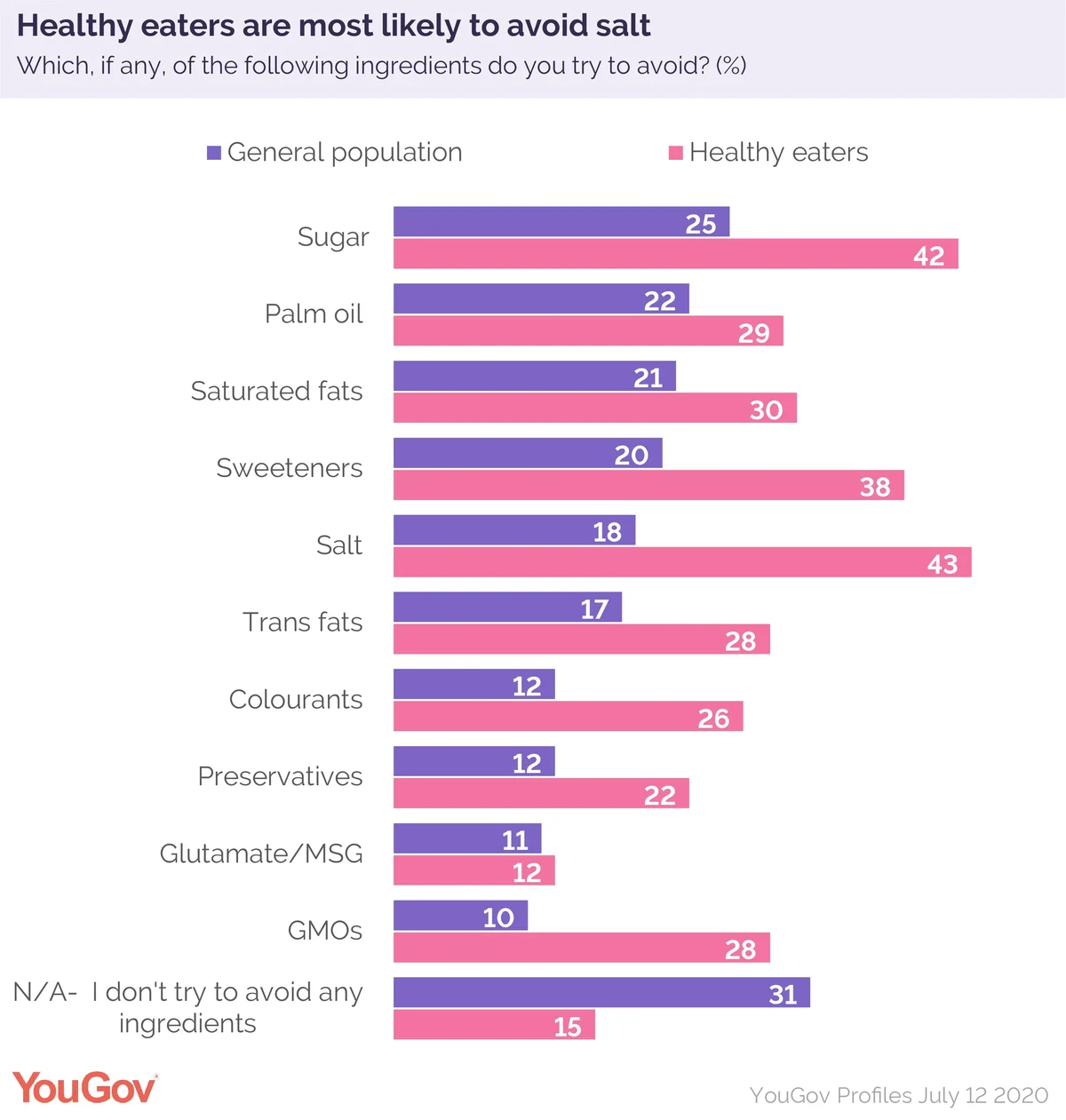
Salt fat acid wheat: what food ingredients do Brits try to avoid?
The public are most likely to dodge sugar, palm oil, fats and sweeteners
A recent report published by the House of Lords suggested that food and drink manufacturers were “perpetuating a demand” for highly processed products with unhealthy ingredients – particularly salt sugar, and various fats. Particular criticism was directed at companies that aggressively market and promote these products at discount prices.
Data from YouGov Profiles indicates that four in ten Brits (40%) consider the health content of food to be a serious concern – ranking only below freshness (49%) as a consideration. It also reveals that a similar proportion (37%) are concerned about sugar levels, while a third (34%) are concerned about fat content and three in ten (28%) are concerned about the amount of salt.
A quarter of Brits go out of their way to avoid sugar and a fifth swear off palm oil and saturated fats
We also have data on which food ingredients the public are most likely to say they actively avoid while cooking.

More Brits steer clear of sugar than any other substance, with a quarter (25%) swearing off the sweet stuff. Palm oil is a reasonably close second, with a fifth (22%) avoiding it wherever they can: this is likely due to environmental campaigns against the deforestation and habitat destruction that is commonly associated with the ingredient’s production. A similar proportion also stay away from saturated fats (21%), sweeteners (20%), salt (18%), trans fats (17%), and fats as a general category (16%).
Among the three in ten (31%) Brits who describe themselves as healthy eaters, the results are somewhat different. Four in ten say they prefer not to use salt (43%), sugar (42%) and sweeteners (38%), while three in ten steer clear of saturated fats (30%), fats as a generic group (30%), palm oil (29%), trans fats (28%) and GMOs (which may be avoided by 28% of health-conscious eaters, but are only dodged by 10% of the public).
Beyond health and ethical considerations, of course, some aversion may be driven by intolerance to certain foodstuffs: 5% of the public, for example, report that they don’t like to use gluten if they can help it, but the same proportion (5%) say they have a wheat/gluten sensitivity.